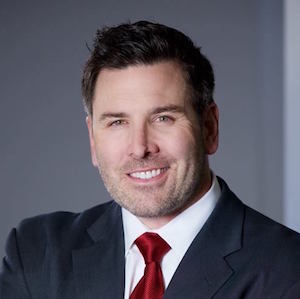
William Cory Spence
is the founder in the IP law firm of SpencePC in Chicago, Illinois. Mr. Spence is a trial attorney with focus on patent, trade secret, unfair competition (including conspiracy, tortious interference, and related antitrust claims), breach of contract, trademark, and copyright litigation. He has litigated claims in both state and federal courts throughout the United States and counseled on post-grant patent proceedings in front of the US Patent and Trademark Office. Mr. Spence has extensive experience with a wide range of patent monetization strategies, including complex, international patent infringement litigation involving multiple parties and jurisdictions, most notably including Japan. He is a graduate of the University of Notre Dame where he received separate B.S. degrees in Chemical Engineering and Biophysics (“Physics in Medicine”). Mr. Spence also holds a J.D. from the University of Houston Law Center. Prior to forming SpencePC, Mr. Spence spent twelve years practicing law with Kirkland & Ellis LLP in Chicago, IL and Tokyo, Japan. Mr. Spence may be reached by email or by phone at 312-404-8882.

Recent Articles by William Cory Spence
The Federal Trade Commission’s (FTC) recently released report on patent assertion entities (PAEs) includes a number of key findings made by the agency on the business model of such companies. The FTC identified two different business models employed by PAEs which differ in terms of litigation and licensing activity. Most of the FTC’s recommendations are legislative in scope but the report does include some advice for the country’s judicial system. For example, the report also includes a number of recommendations to deter what the FTC calls “nuisance litigation.”
The information the FTC has been collecting regarding patent assertion entities is extensive. Along with standard corporate information, the FTC is making a survey of each patent in PAE portfolios going back to 2008 to investigate the date of patent acquisition, the patent’s maintenance fee status as well as the assertion history for all patents upon which the PAE has attempted to enforce its rights. Firms are also being asked to describe their business model, the methods used to organize their patent portfolios and the aggregate costs of patent acquisition and assertion. The FTC has sent information requests to 25 PAEs in order to build its evidence.

![[IPWatchdog Logo]](https://ipwatchdog.com/wp-content/themes/IPWatchdog%20-%202023/assets/images/temp/logo-small@2x.png)